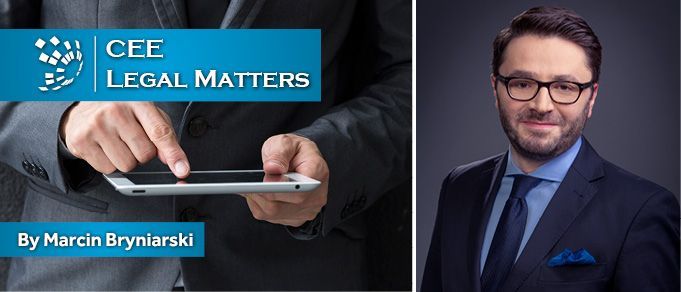The rapid transformation (one could almost say the revolution) of the world of legal services is a fact and has been taking place for some time now. In fact, I believe it is now gaining its full momentum. This transformation affects both law firms and in-house legal departments. It started several years ago with cost-cutting, as clients expected more and more for less and less: in-house legal departments from external law firms, and internal clients from in-house lawyers. More changes followed.
It is no longer sufficient to have merely a traditional knowledge of the law. Clients (by whom I mean both law firm clients and internal clients of in-house law departments) expect lawyers to provide solutions to their business problems. Additionally, providing advisory services of a strictly legal nature is no longer sufficient: one must be familiar with and understand business, have (an increasingly broad) understanding of management, and look at problems at hand and their possible solutions strategically and with a broader view. Moreover, a lawyer must be able to work in a team and understand (although a number of us will find it difficult to come to terms with this fact) that there may be teams where he or she will not be the leader, but a member, and the matter will not involve a legal project but a business one. We must also bear in mind competences in the field of finance, project management, and IT.
As if all that weren’t enough, start-up initiatives (whether independent or affiliated to large international law firms) are springing up like mushrooms, focused on automating selected legal services using advanced IT technologies or artificial intelligence.
So many years – if not centuries – of the traditional model of prosperity … and now within just a few years the world has been turned upside down.
Let’s be honest: March or die! There is no other way than to accept the changes and start benefiting from them.
Frankly speaking, I welcome the changes with joy and relief; I could not wait to see them. I do not perceive them as a threat. Not at all! For me they are a fantastic opportunity to participate in an exciting venture, a great adventure, which offers me the chance to become a fully-fledged lawyer of the 21st century, providing services suited to contemporary (and future) requirements.
I believe the key element of the changes is the people we work with – the members of our in-house teams. There are two good reasons for this: First, we cannot change anything without them; and second, it is these people that frequently force us to make the changes.
The market is starting to be dominated by people commonly known as the Y/Millennial Generation. Let us not pretend that we don’t know: They also include lawyers, and we are either already working with them now or we are going to work with them in the near future. A lot has been said about the qualities of the Y Generation, how they differ from past generations, and why they differ so much from the X generation (which I am told I represent). I get the impression that these descriptions are dominated by an image and evaluation of the Y Generation, albeit not straightforwardly expressed, yet negative and formed from a distance, which presents them as somehow “extravagant” (momentarily, those describing them hope) compared to what is proper and normal.
A number of my colleagues both inside and outside the legal profession look upon the Millennials with concern, and while some indulge them, most think that they will not make proper lawyers in the full meaning of that term, or committed lawyers, because a good lawyer has qualities and stands up for values that are the exact opposite of those of the Y Generation.
I think they are wrong. Millennials can make fantastic lawyers and members of our teams, if we just put aside our prejudices and stereotypes and are open to what they offer.
Is there anything wrong or dangerous in these qualities?
Expectations of the Millennials will force us to set clear goals, identify the sense in each task, and provide clear and immediate feedback, which can only increase efficiency.
When work is a pleasure and fulfils our intellectual ambitions, we work better and are more willing to work, while new ideas come effortlessly.
Freedom in the world of modern technology may open up paths for legal departments which until now seemed quite inaccessible.
I believe in-house lawyers may accomplish a number of their back-office tasks equally effectively, whether sitting at a desk in the company’s office or working anywhere in the world with their laptops. Yes, I do believe a lawyer may be a digital nomad, why not? And in this situation our colleagues are sure to accomplish their work-life balance. And since I am talking about the work-life balance: Do we really believe that work is more important than private life, family, and hobbies, and that leaving the office before 8:00 p.m. is unnatural?
I have spent most of my professional life as an in-house lawyer, and the last few years as a GC, and from these perspectives – both as regular lawyer and manager of the entire department – I can say, with full confidence: Let’s treat Millennials as a gift and an enormous chance, for us personally, for our departments, and for entire companies. They can offer a fresh perspective, courage, and a new outlook on rules and values. They may force us to ponder our private lives and careers. They may help us change how our profession and its role in companies are perceived. And they will be one of the elements that will help us become successful lawyers of the 21st century.
This Article was originally published in Issue 4.4 of the CEE Legal Matters Magazine. If you would like to receive a hard copy of the magazine, you can subscribe here.

















